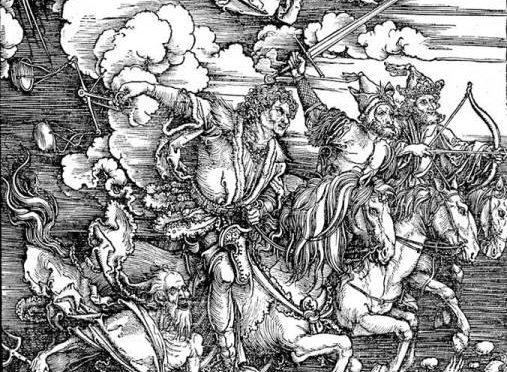Journées d’étude
Date : 20 et 21 mai 2019
Lieu : Academic Conference Center (AKC, Husova 4a,
Prague 1) et Faculté des Lettres de l’Université Charles, salle 104 (FF UK, náměstí Jana Palacha 2, Prague 1)
Organisateur : Martin Pjecha (CEU / CEFRES)
Organisée en collaboration avec : CEFRES, Centre for Medieval Studies (CMS), Central European University (CEU)
Langue : anglais
Conférences plénières :
- Phillip Haberkern (Boston University) : When did Christians Become Revolutionary? A Reflection on Hannah Arendt
- Matthias Riedl (Central European University, Budapest) : Apocalyptic Platonism: The Thought of Thomas Müntzer
20 Mai 2019
10:00 – Conférence introductive
10:30-12:00 – Panel 1: Urban and noble rebellion in the 17th century
- Rik Sowden (University of Birmingham): Religion and rebellion in Nottingham during the British Civil wars – (intervenant: Vladimír Urbánek)
- Márton Zászkaliczky (Hungarian Academy of Sciences, Institute for Literary Studies, Budapest): Calvinist Political Theology in the Bocskai Rebellion (1604-1606) – (intervenant: Vladimír Urbánek)
12:00-13:00 – Pause déjeuner
13:00-14:20 – Panel 2: 20th century interpretations
- Behrang Pourhosseini (University Paris 8): From Christian Victimary Politics to Shi’ite Messianism : A Debate around the Iranian Revolution – (discussant: Thomas C. Mercier)
- Giacomo Maria Arrigo (KU Leuwen/University of Calabria): Gnosticism and Revolution: Towards an Explanatory Pattern – (discussant: Matthias Riedl)
14:20-14:40– Pause Café
14:40-16:00 – Panel 3: Imperial and Soviet Russia
- Anastasia Papushina (CEU, Budapest): Martyrs and heroes: revisiting religious patterns in revolutionary times – (discussant: Hanuš Nykl)
- Daniel García Augusto Porras (Universitat Ramon Llull (Barcelona)/Universidad Pontificia Comillas ): Revolution as political religion in Russia: Dostoevsky’s Grand Inquisitor and its interpreters in Russian religious thought – (discussant: Hanuš Nykl)
16:00-16:20– Pause Café
16:30-18:00 – 1ère Conférence plénière
- Matthias Riedl (CEU, Budapest): Apocalyptic Platonism: The Thought of Thomas Müntzer
21 Mai 2019
10:00-11:20 – Panel 4: The French Revolution
- Mathias Sonnleithner (MLU, Halle-Wittenberg) : Robespierre’s Belief to Be God’s Chosen – A Key Element of the Political Theology of the Terror – (discussant: Jakub Štofaník)
- Amirpash Tavakkoli (EHESS, Paris) : French revolution, a Christian reading – (discussant: Jakub Štofaník)
11:20-11:50 –Pause Café
11:50-13:10 – Panel 5: Violence and bliss in medieval Bohemia
- Pavlína Cermanová (CMS, Prague): The Theology of Hussite Innocence – (discussant: Phillip Haberkern)
- Martin Pjecha (CEU, Budapest/CEFRES, Prague): “Cosmic” revolution in radical Hussitism – (discussant: Phillip Haberkern)
13:10-14:30– Pause déjeuner
14:30-16:30 – Panel 6: Intellectual transfers and comparisons in early modernity
- Sam Gilchrist Hall (Károli Gáspár University of the Reformed Church in Hungary, Budapest): “But I do not doubt the people”: Thomas Müntzer and King Lear – (discussant: Matthias Riedl)
- Luke Collison (Kingston University London): Hobbes and ‘Religion’ on the Threshold of Modernity – (discussant: Matthias Riedl)
- Benjamin Heidenreich (University of Würzburg): Huldrich Zwingli´s influence on the “Peasants´ War” of 1525 – (discussant: Phillip Haberkern)
16:30-16:50 –Pause Café
17:30-19:00 – 2ème Conférence plénière
- Phillip Haberkern (Boston University): When did Christians Become Revolutionary? A Reflection on Hannah Arendt
FF UK, salle 104 (náměstí Jana Palacha 2, Prague 1)
19:00 – Conférence finale

